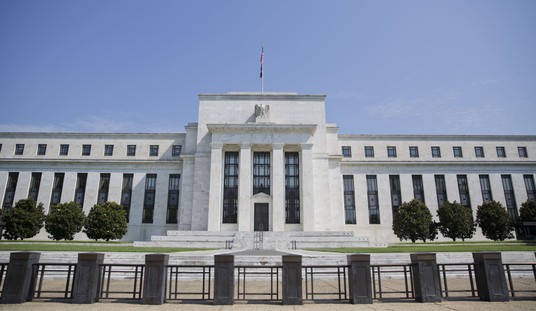I’m in Copenhagen, Denmark, the happiest country in the world. Because, it seems, they have low expectations. And why shouldn’t they? The climate stinks, the sky is dark or slate grey most of the year, it’s a small, out-of-the-way country that used to matter when axes were considered advanced military technology, and there are only about six million Danes to begin with, so nobody expects them to solve any of the world’s big problems. So low expectations are easy to understand. On the other hand, I don’t quite understand why you’d be happy with lousy weather and grey skies most of the time.
Anyway, here I am, not, as you might imagine, to catch up on the latest cartoon riots, which you can follow on Pajamas thanks to the great reporting of my friend Flemming Rose. And yet there is no avoiding it. I am here to participate in a “Reconciliation Conference” of Iraqi religious and political leaders, supported in part by the Danish Foreign Ministry (and full honors to them for doing it, and for carrying on with it despite the recent riots). Full honors also to the Iraqi clerics and National Security Adviser Rubayie who came, even though lots of Iraqi Muslims are quite exercised at the republication of the now-celebrated cartoons of Mohammed. Those who came to Copenhagen condemned and lamented the cartoons, lest they face angry members of their umma when they return home.
Yet the riots, as the thugs themselves have now proclaimed, had little to do with offended Islamic sensibilities. They began a few days before Danish police arrested three persons, and accused them of plotting the assassination of the creator of the most infamous cartoon, the one with a stick of dynamite burning in the Prophet’s turban. The riots came in response to other arrests in Copenhagen, of hashish smugglers and dealers. This was just too much for the kids. As they put it in a front-page statement today
“Basically the unrest is about the way we are treated by the police, who are brutal, racist and totally unacceptably insulting,” the group said in the letter. The authors called themselves “Boys of inner Noerrebro,” referring to the immigrant neighborhood in Copenhagen where the unrest started on Feb. 10.
It was also convenient that the events took place during the winter school holiday, and that they have died down as the schools reopened. Yesterday, a woman from the Danish Foreign Ministry gave the Iraqis a summary of the origins of the riots, and this morning the country’s excellent foreign minister talked about the arrests, noting to the Iraqis that “I am sure you will agree that murder is not acceptable.”
The Iraqis are in Copenhagen to try to hammer out a collective call for national reconciliation, and to recommend steps the government might take to accelerate this process. They are particularly intent on improving the treatment of some of the lesser-known religious groups in the country, who have been decimated by sectarian violence and who have yet to receive decent treatment from the government. A strong statement from the nearly two dozen leaders gathered here might help.
As so often in the past, this ecumenical effort has been driven by the Anglican Canon of Baghdad, Andrew White, who in ten years in Iraq has somehow managed to win the obvious trust and affection of an amazingly wide cross-section of national leaders. It was easy to see how he has accomplished it. Today was given over to a lively and often impassioned discussion of what we would call church and state relations, which the group put in terms of a rhetorical question: should religion play and advisory or a supervisory role in government? Much of the debate focused on the paragraphs in the Constitution that is generally translated as saying that the Iraqi Government cannot adopt any law that is in conflict with shariya law. But Rubayie was at pains to point out that the actual language does not spell it out quite so specifically, and reads that government actions must “rest on the pillars of Islam.” The implication—sometimes accepted, sometimes challenged over the course of the day—is that the Koran does not always have Constitutional standing. And the participation of Iraqi Christian clerics, and others from pre-Islamic sects, seemed to suggest that the people here are seeking broader toleration of, and greater involvement with, differing religious groups. It will be fascinating to see how it gets sorted out in the end.
One underlying theme speaks volumes about the current state of affairs inside Iraq: without exception, participants feel much better about their country. They are breathing easier about security, they all denounced al Qaeda and other “regional parties” (privately they will tell you they put Iran, Syria and Saudi Arabia in the front rank) who have conducted or sponsored the mass killing, they do not want “religious extremists” included in their Reconciliation, and they even believe that Iraq may set an example for the rest of the region.
Maybe something revolutionary is under way here. Maybe not, but when I suggested to some of them that they might have a look at Tocqueville’s thoughts on separation of church and state, they wrote it down.









Join the conversation as a VIP Member